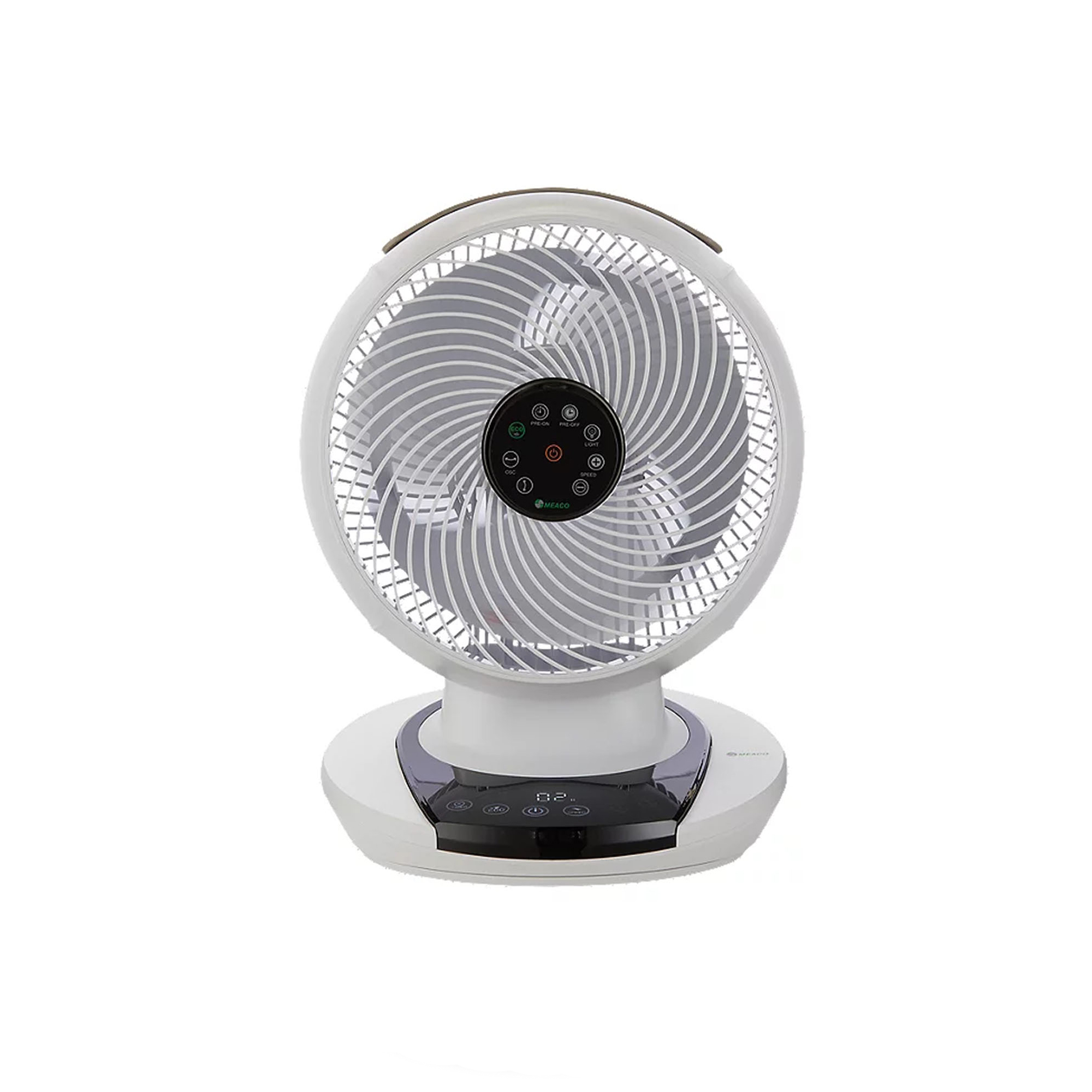Will a fan help a dehumidifier? Experts say this underrated pairing is the secret to keeping cool this summer
Maximise your appliance's performance and stay cool at the same time
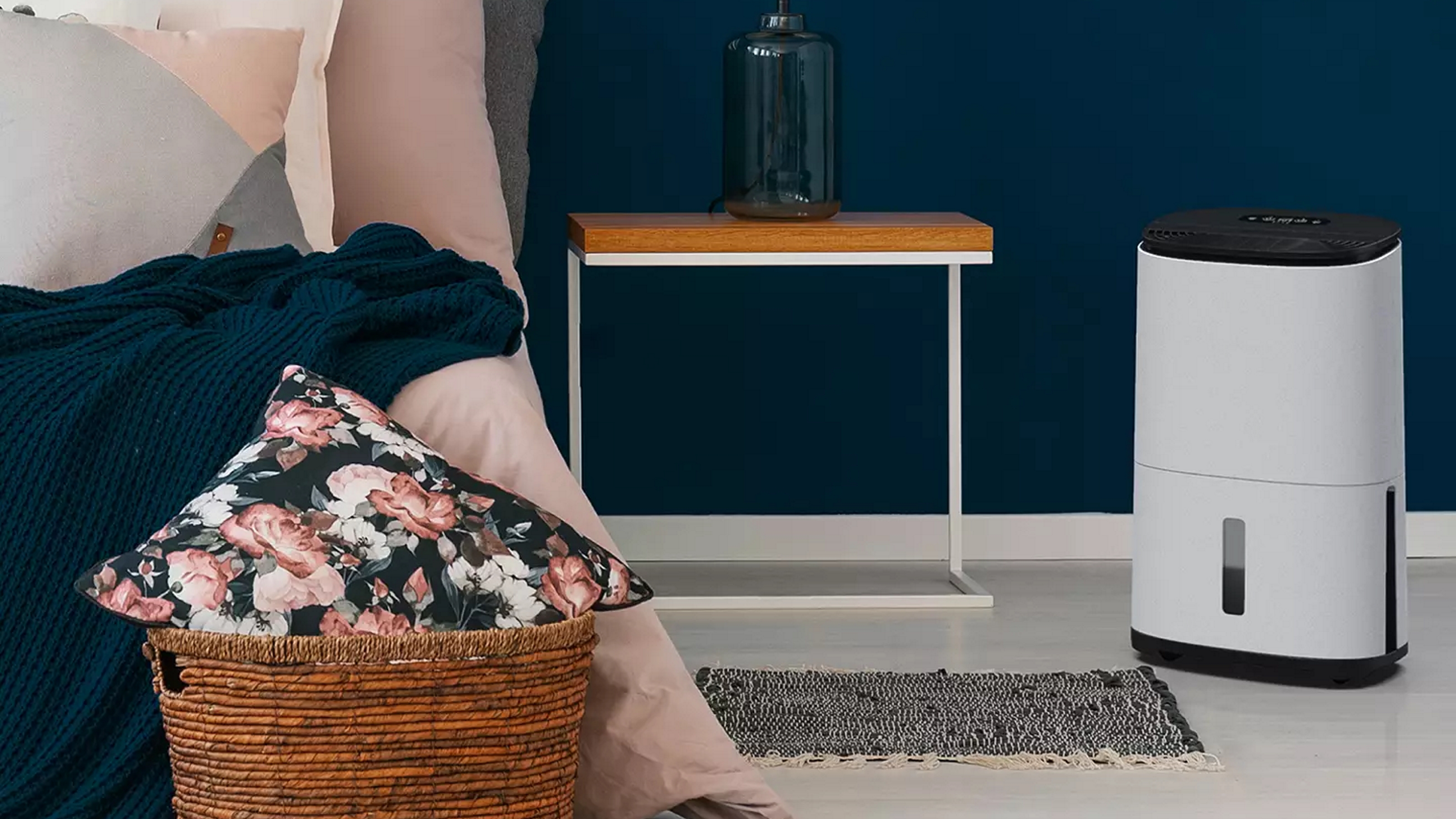

If you're already preparing early on ways to combat the stifling summer heat, taking a closer look into ways you can utilise your existing home appliances smarter is a good place to start. That said, have you ever considered whether a fan could help a dehumidifier work more efficiently?
Seeing as the best fans are a go-to solution to feeling cooler amidst soaring temperatures while the best dehumidifiers work to remove excess moisture in the air, could combining the two be the lesser-known secret to overcoming a humid British summer?
Although a dehumidifier may not initially spring to mind as a cooling device, what a lot of people don't know is that while a dehumidifier doesn't cool a room exactly, using one during warmer weather comes with a host of benefits. Paired with your trusty fan, using the two simultaneously might just be the hack you need this summer.
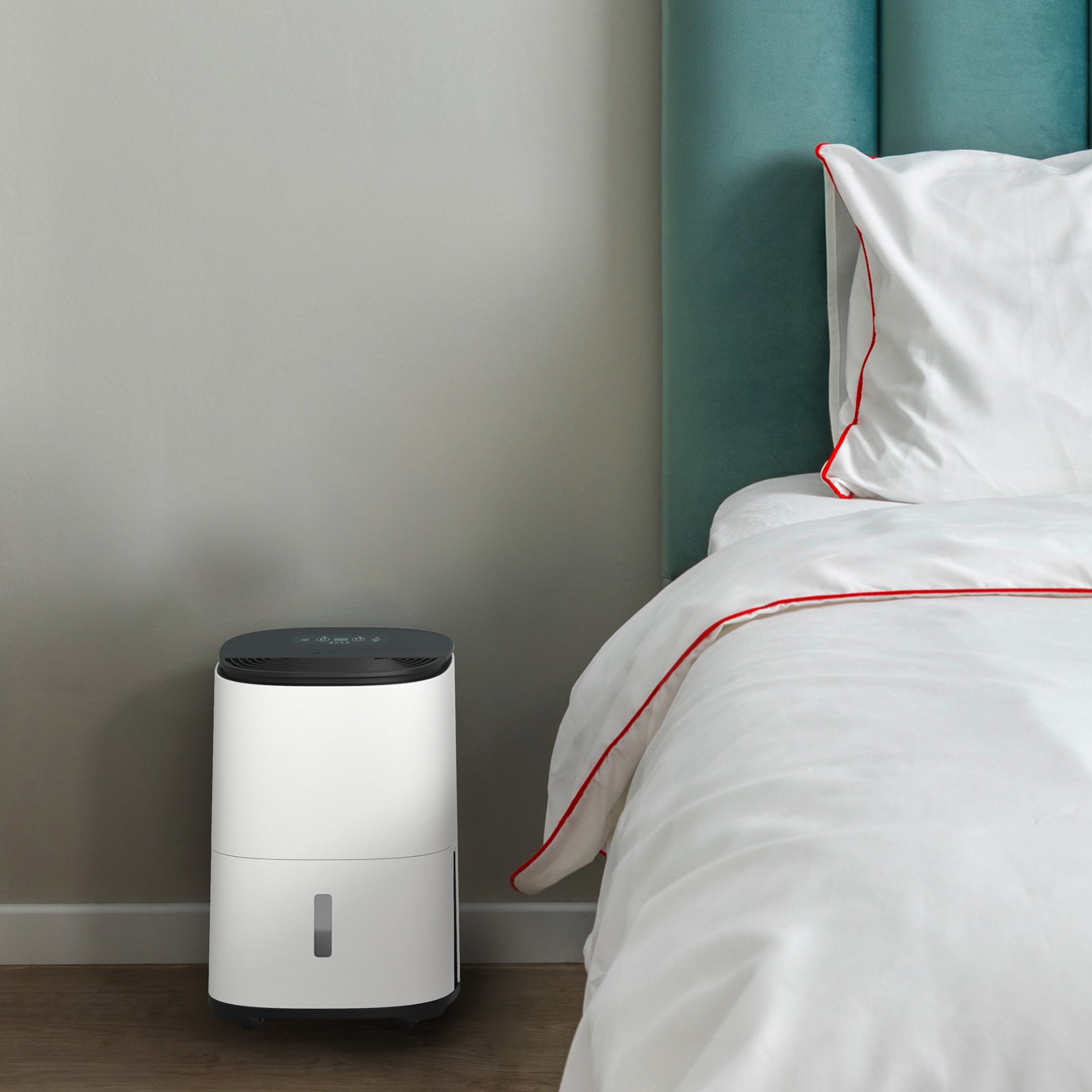
Will a fan help a dehumidifier?
The shower answer? Yes, a fan will indeed help a dehumidifier perform more effectively and will help with keeping a bedroom cool in the coming months.
'Using a fan in conjunction with a dehumidifier can improve the dehumidifier's performance in a home setting,' explains Nathan Paul, air appliance expert at Appliances Direct. 'A fan helps move the air around the room, while the dehumidifier removes the moisture.'
'Using both appliances together can enhance the dehumidifier's ability to extract moisture from the air by moving humid air towards the dehumidifier, allowing the appliances to operate more efficiently and effectively,' continues Nathan.
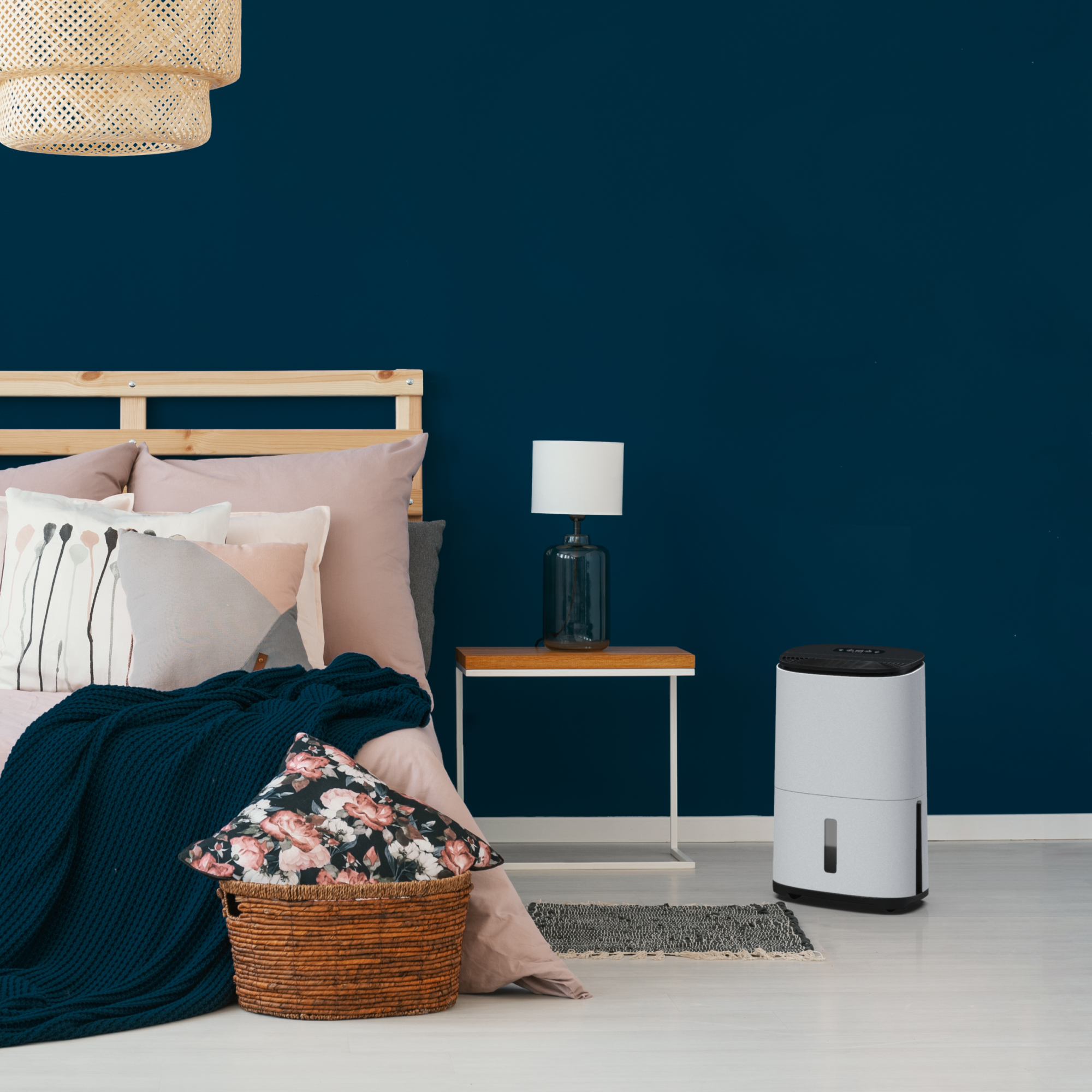
In case you're wondering just how exactly these two appliances (which at first glance appear to serve different purposes) can work so well together, Jason Farrell, HVAC expert and certified master technician at Mechanic's Diary explains.
'The fan creates airflow which makes the room feel cooler. This assists the dehumidifier since lower temperatures allow it to condense more water vapour out of the air.'
'The constant circulation from the fan also ensures the dehumidifier is processing fresh air rather than just re-processing the same stagnant air in one spot. Additionally, the fan distributes the drier air from the dehumidifier around the room. This helps maintain a balanced moisture level throughout the space,' adds Jason.
Better yet, if you're a hay fever sufferer and are keen on finding ways to reduce allergens in your home, this constant air circulation also helps reduce dust, pet dander and other allergens by preventing them from settling.
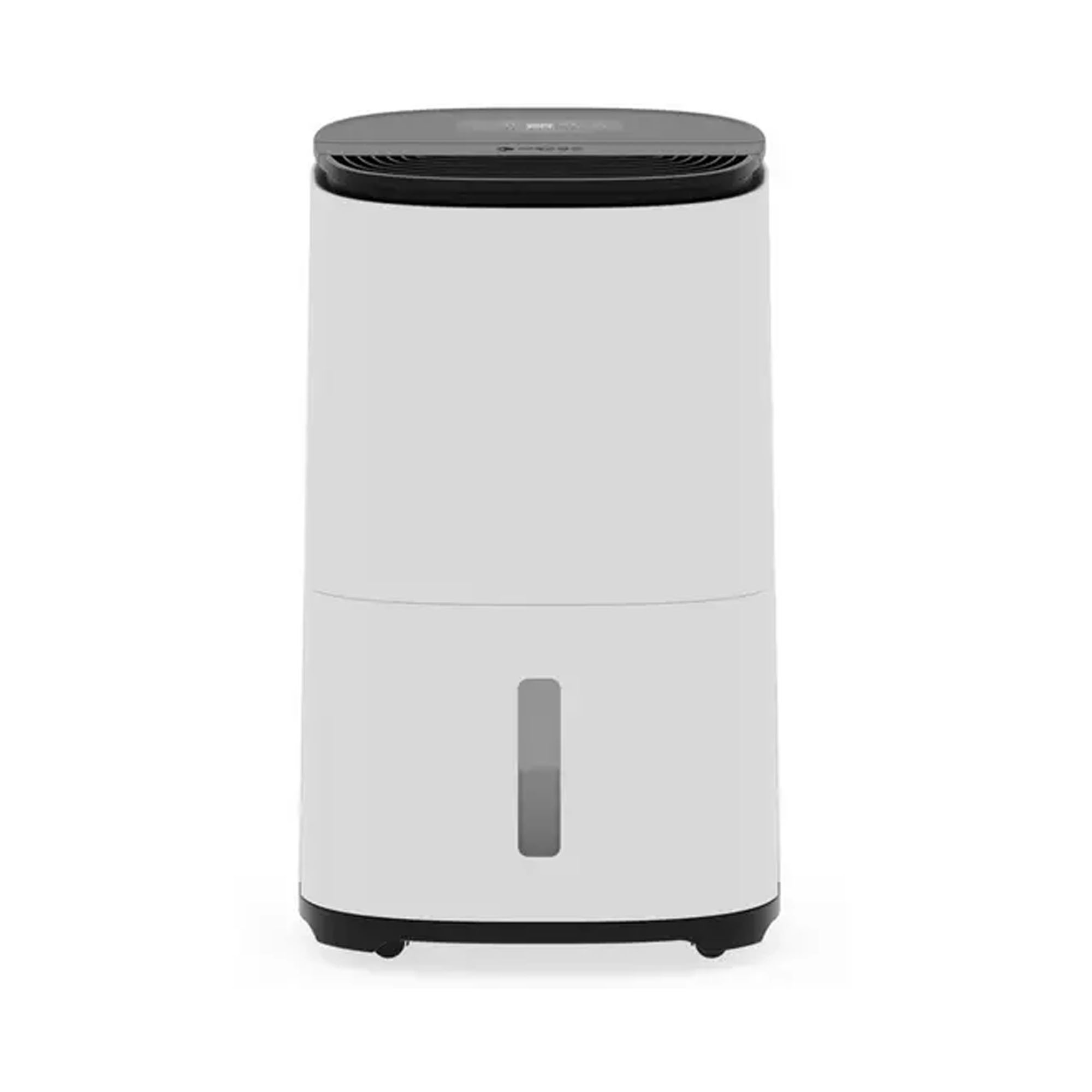
FAQs
Should I use a fan with a dehumidifier?
Although it's not essential, using a fan with a dehumidifier is a complementary pairing.
'Having a fan circulate air in a room can complement a dehumidifier's functionality,' explains Jason Farrell from Mechanic's Diary. 'The fan helps keep the temperature comfortable while the dehumidifier removes moisture from the air.'
'Although a dehumidifier can work independently, the combined use of a fan can enhance its performance, particularly in larger or more humid areas,' agrees Nathan Paul from Appliances Direct.
'This combination can be particularly useful in spaces prone to dampness, such as cellars or bathrooms, where improving air circulation can significantly impact overall air quality and comfort.'
How to make a dehumidifier more efficient?
To make a dehumidifier more efficient, you should be mindful of where you're positioning it. One of the biggest dehumidifier mistakes includes placing it too close to a wall or even putting it the wrong way around when wanting to use a dehumidifier to dry clothes.
Then, similar to using any home appliance like a fan, air purifier, or AC unit, a dehumidifier will work more efficiently when doors and windows are shut so it can focus on one room or enclosed area in a home.
Does leaving a fan on reduce humidity?
Yes, leaving a fan on can help reduce humidity indoors as it ensures air is constantly moving around a room and not staying stagnant for too long, resulting in more consistent humidity levels all around.
Appliances Direct's Nathan Paul explains that leaving a fan on can help 'prevent areas of high humidity that could lead to mould growth and other moisture-related issues.'

As such, using a fan alongside a dehumidifier results in an effective strategy for nailing indoor climate control and overall making the inside of your home feel a bit more comfortable.
Of course, we know dehumidifiers already work effectively without the assistance of a fan to help get rid of damp and dry clothes quickly – so long as you keep it running for long enough. So, don't feel as though it's now mandatory to add a fan to the mix when running your dehumidifier overnight.
However, if you want to crank up the chill factor in your home and don't have the space or budget for the best portable air conditioner on the market, this is an effective way to make the most out of home tech investments you already have.
If this summer is anything like the last few we've experienced, we certainly think it's worth a try.
Get the Ideal Home Newsletter
Sign up to our newsletter for style and decor inspiration, house makeovers, project advice and more.

Jullia was Ideal Home’s Junior Writer from 2022-2024 and the Ideal Home Certified Expert in Training on Vacuums having spent over 60 hours testing different models. She’s always loved all things homes and interiors, graduating with a bachelor’s degree in Architectural Studies from the University of Nottingham where her love for writing blossomed following her internship at ArchDaily. Now focused on home tech and cleaning, Jullia works on writing features and explainers to help people make the most of their home appliance investments, putting the newest launches through their paces. When she isn’t writing, she loves exploring the city, coffee shop hopping, and losing hours to a cosy game or book.
-
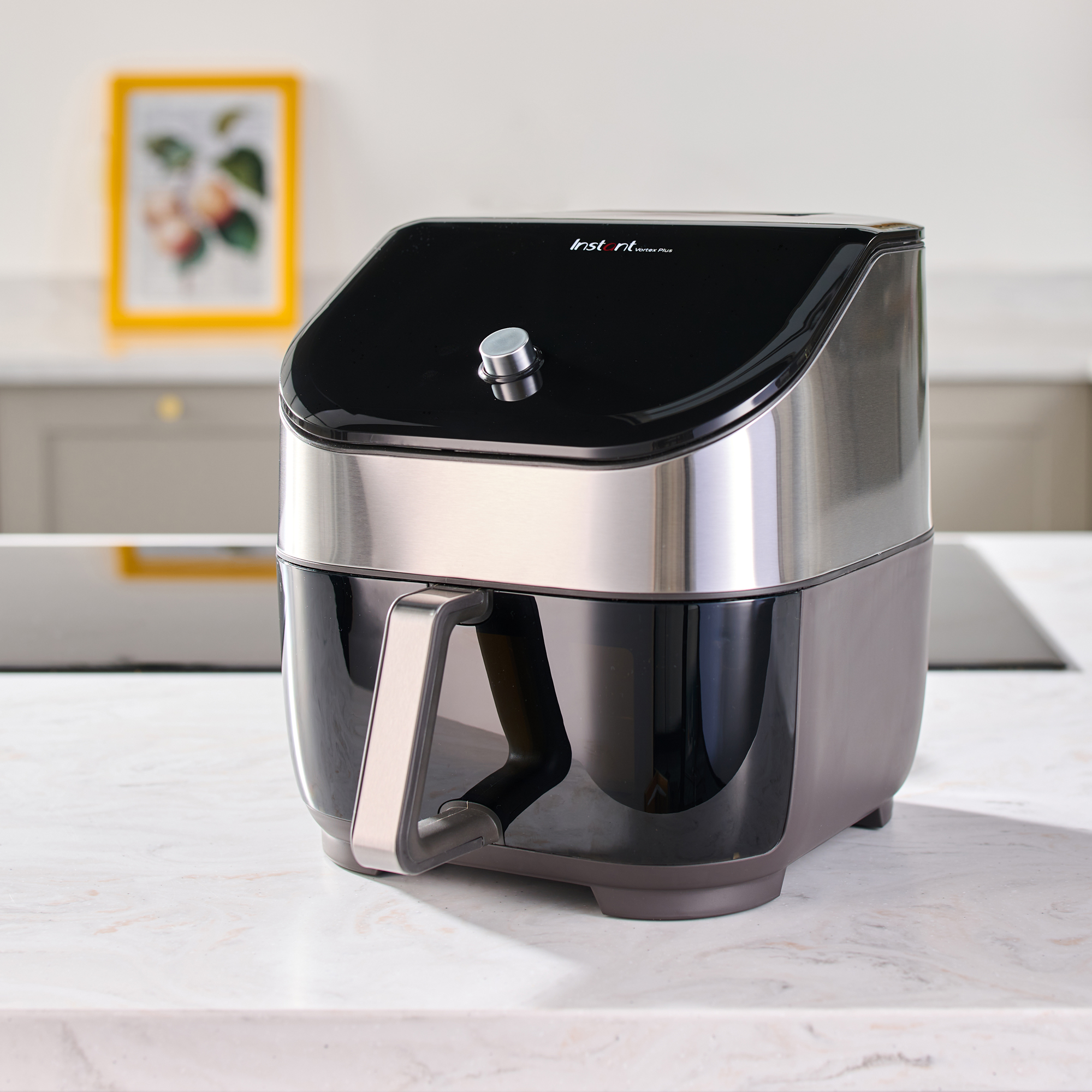 Should an air fryer be on display in a kitchen or hidden away? This is why I always keep my small appliances on the worktop
Should an air fryer be on display in a kitchen or hidden away? This is why I always keep my small appliances on the worktopAre you on team display or neatly hidden away? Share your opinion in the comments
By Rebecca Knight
-
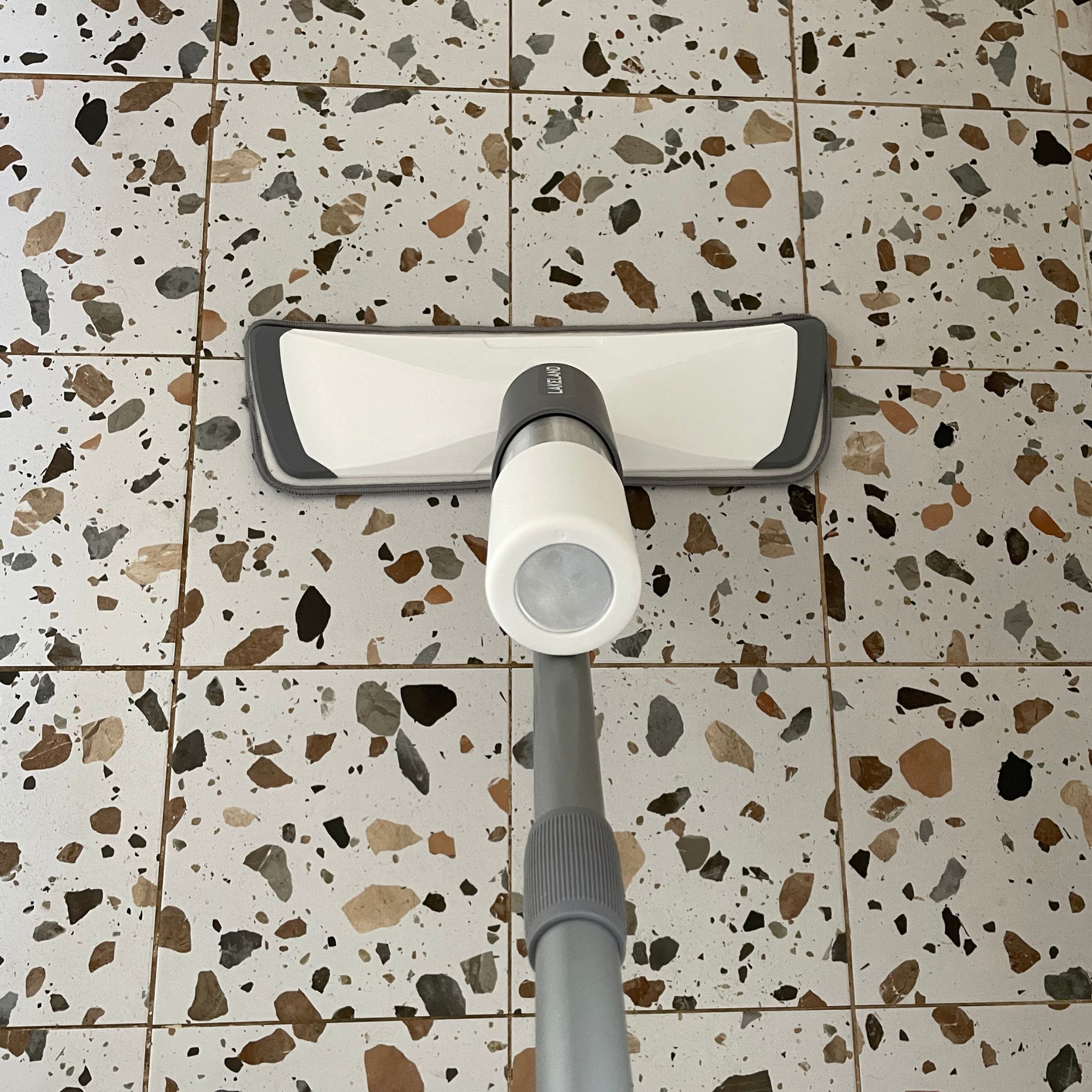 Experts warn that these 5 mopping mistakes are making your floors dirtier — and damaging your floors in the process
Experts warn that these 5 mopping mistakes are making your floors dirtier — and damaging your floors in the processThis is how to keep them clean and avoid costly damage
By Lauren Bradbury
-
 Move over, fences – dead hedges are the wild and wonderful alternative your garden will love and they're easier to build than you'd think
Move over, fences – dead hedges are the wild and wonderful alternative your garden will love and they're easier to build than you'd thinkThe perfect eco-friendly solution for small gardens
By Kayleigh Dray
-
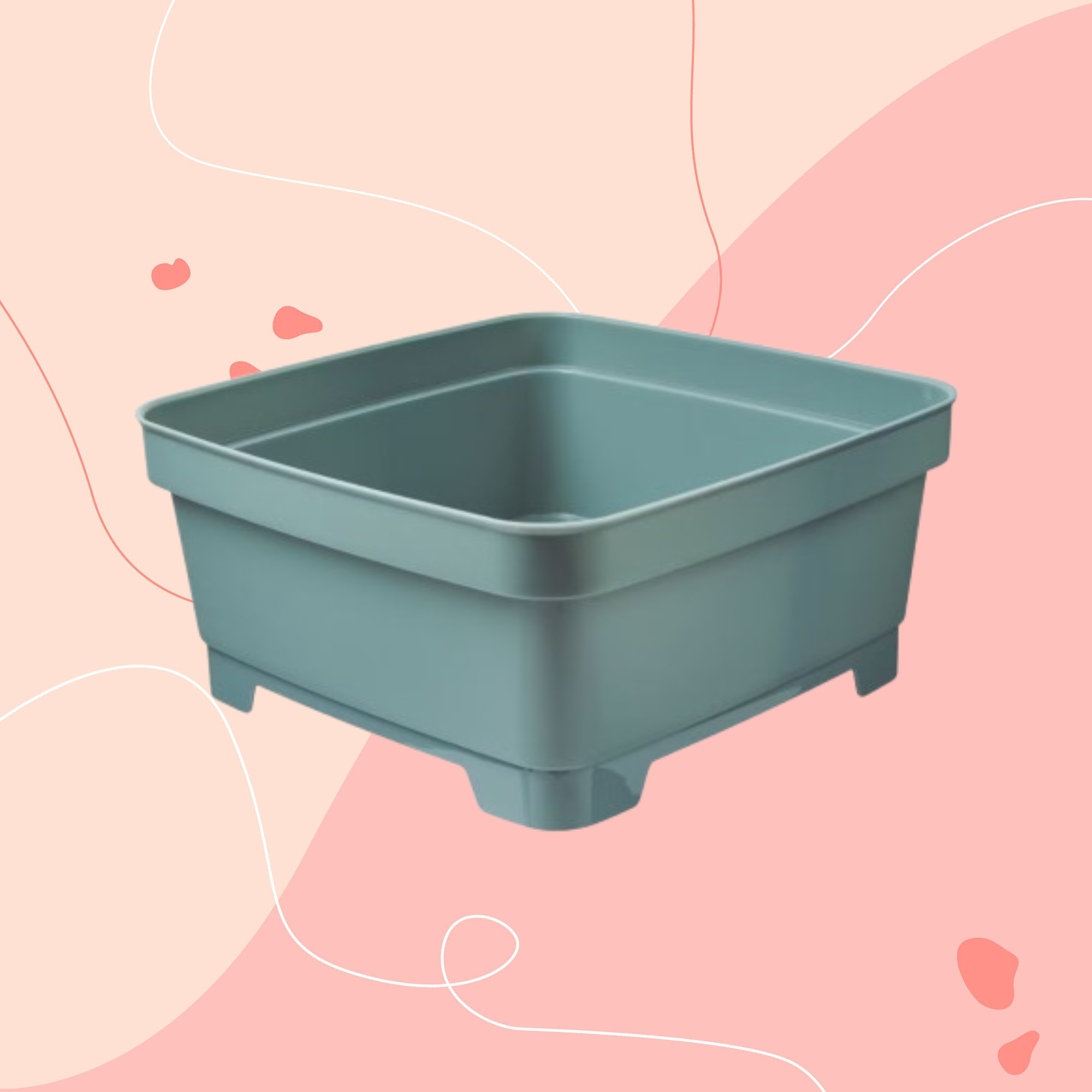 Aldi is releasing a budget alternative to the cult Joseph Joseph washing up bowl – it’s just £4.99
Aldi is releasing a budget alternative to the cult Joseph Joseph washing up bowl – it’s just £4.99The Joseph Joseph washing up bowl is an Ideal Home favourite - now we can't wait to try Aldi's alternative
By Kezia Reynolds
-
 I just bought my first home, and this £10 buy was the very first thing I bought for it to make it feel warmer and secure
I just bought my first home, and this £10 buy was the very first thing I bought for it to make it feel warmer and secureIf I did it all again, this would still be my very first buy
By Rebecca Knight
-
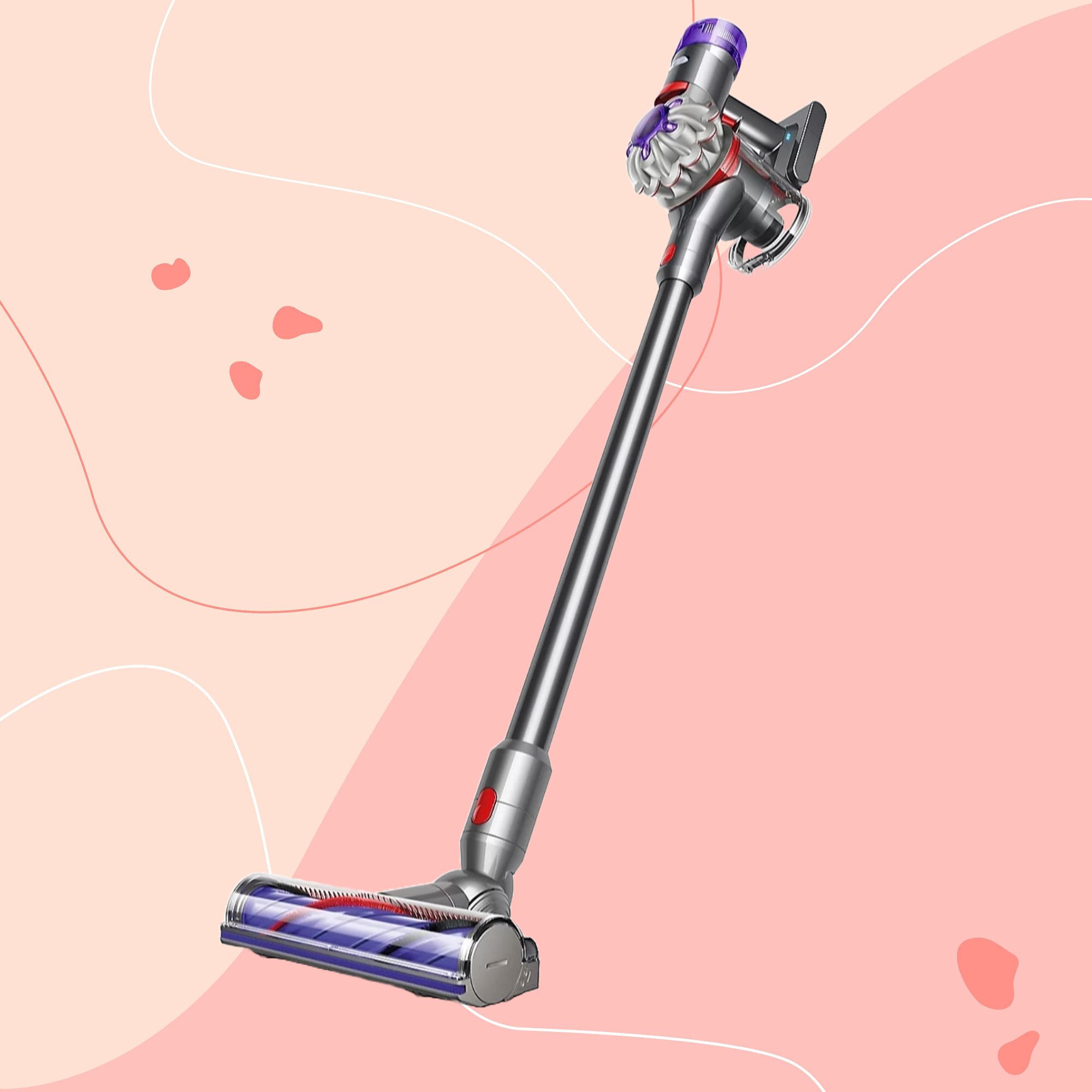 It’s normally impossible to find a Dyson vacuum for under £250 — but QVC has slashed the price of their bestselling models for a limited time
It’s normally impossible to find a Dyson vacuum for under £250 — but QVC has slashed the price of their bestselling models for a limited timeRun don’t walk to pick up the brand’s bestselling model for under £230 before it sells out
By Lauren Bradbury
-
 Catherine Zeta-Jones has revealed the cleaning product she swears by to keep her home fresh - and it’s just £8 on Amazon
Catherine Zeta-Jones has revealed the cleaning product she swears by to keep her home fresh - and it’s just £8 on Amazon'I use it on my counters. I use it on my walls. I use it on my doors. When I smell it, I know my house is clean.'
By Kezia Reynolds
-
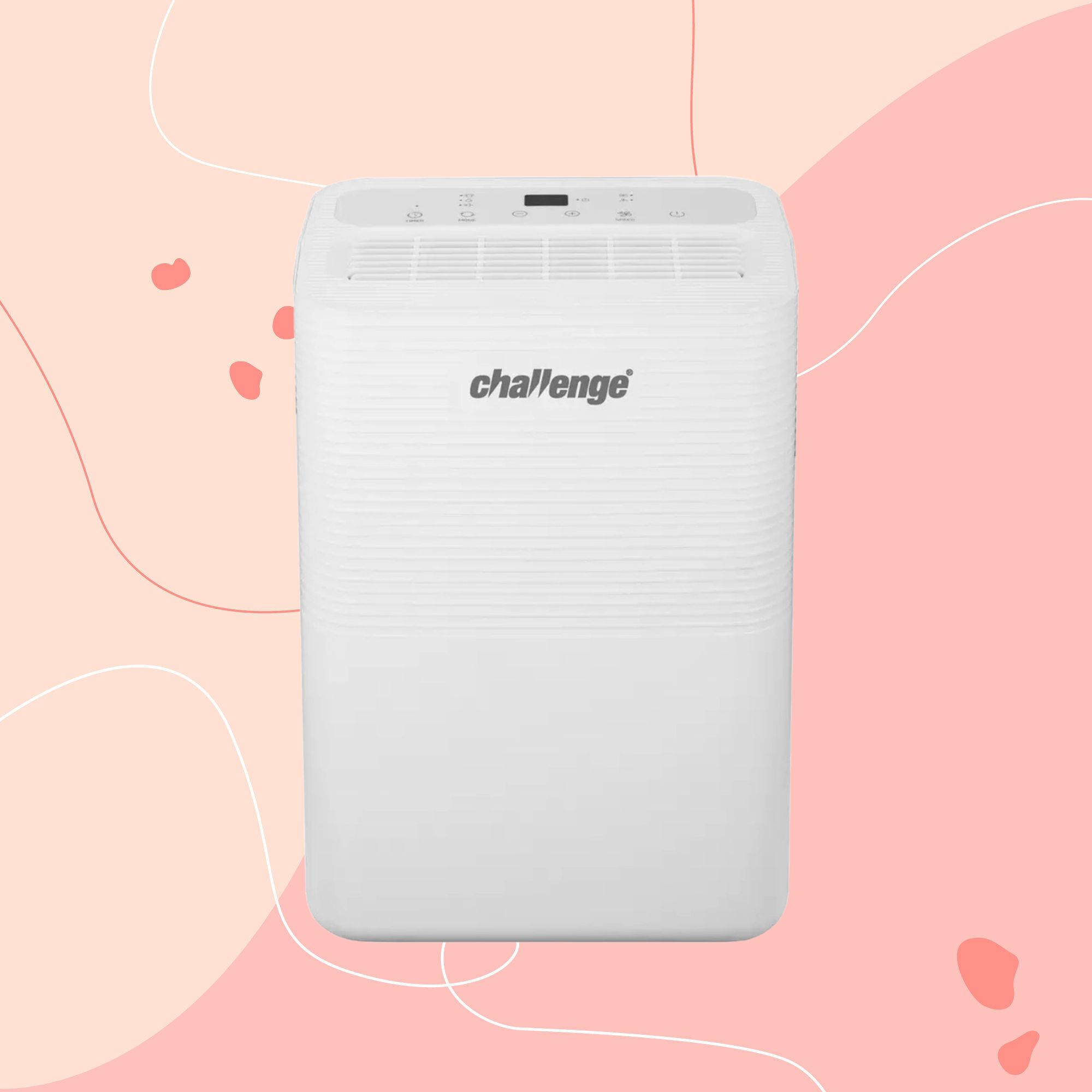 I tested the 12L Challenge dehumidifier in my damp Victorian home over winter — I haven’t spotted any signs of mould for the first time in five years
I tested the 12L Challenge dehumidifier in my damp Victorian home over winter — I haven’t spotted any signs of mould for the first time in five yearsThe Challenge 12L dehumidifier doesn’t have too many bells and whistles, but I can already see the difference it’s made to my damp home
By Lauren Bradbury
-
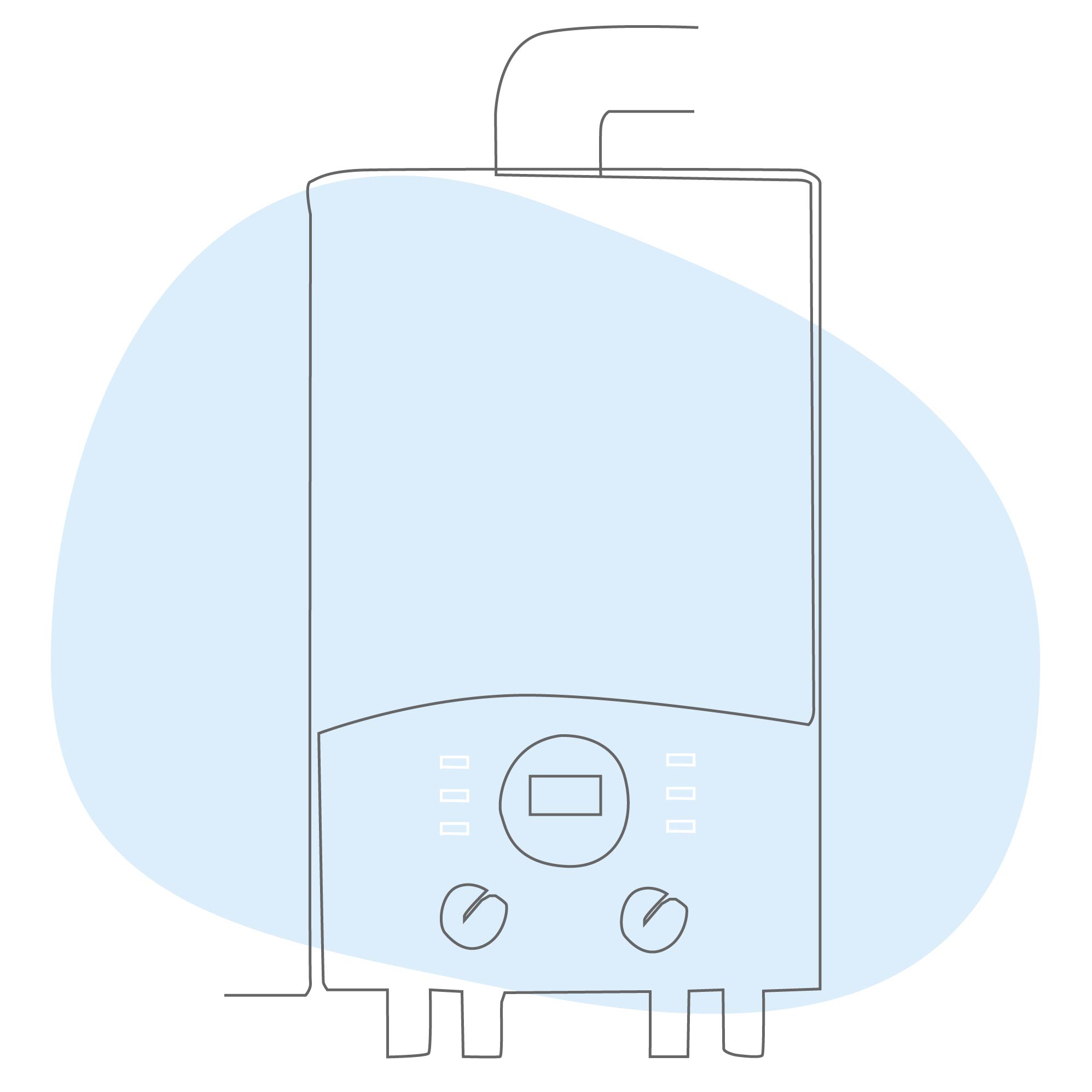 What is boiler flow temperature? Heating experts urge you to check yours now as you could be overpaying on your energy bills
What is boiler flow temperature? Heating experts urge you to check yours now as you could be overpaying on your energy billsTurning this little-known number down just a few degrees can result in some serious savings
By Lauren Bradbury
-
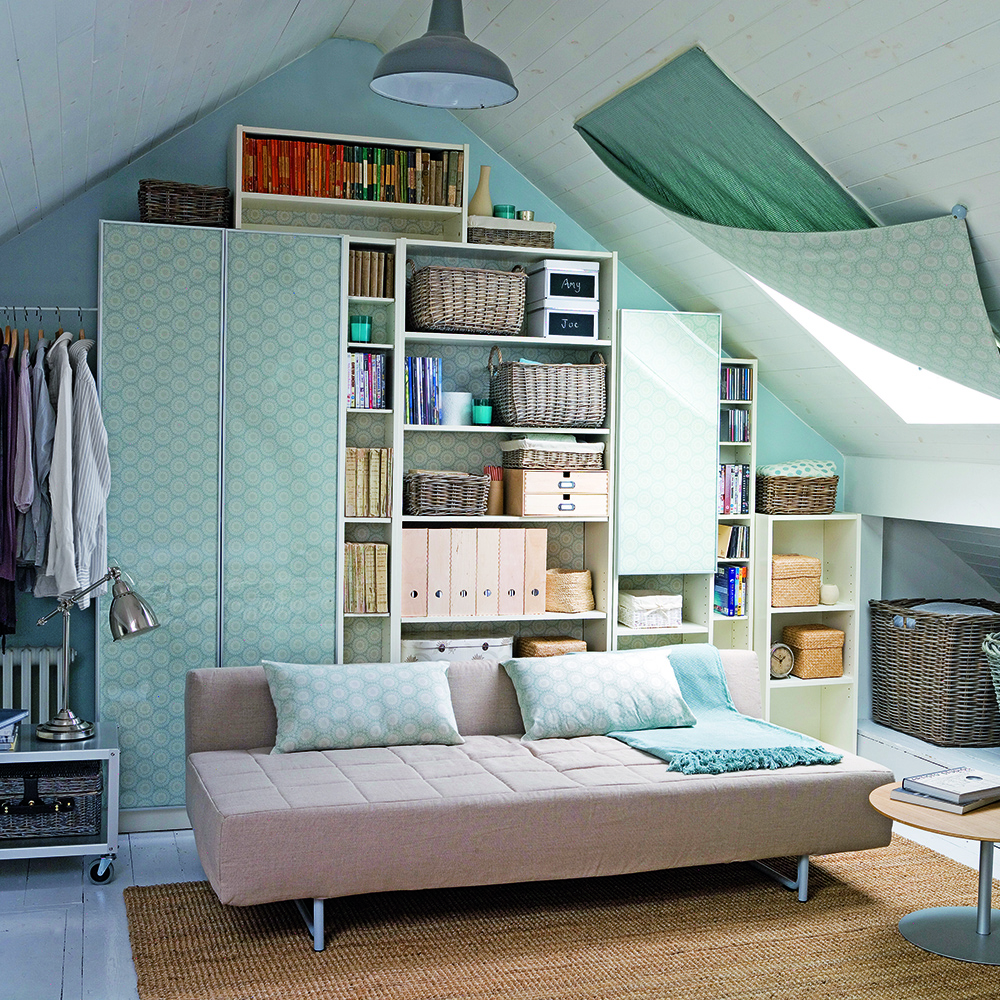 Stacey Solomon has shared 5 nifty wardrobe storage hacks to make getting ready in the morning easier — and they're genius
Stacey Solomon has shared 5 nifty wardrobe storage hacks to make getting ready in the morning easier — and they're geniusThese five wardrobe storage hacks are a gamechanger
By Katie Sims
-
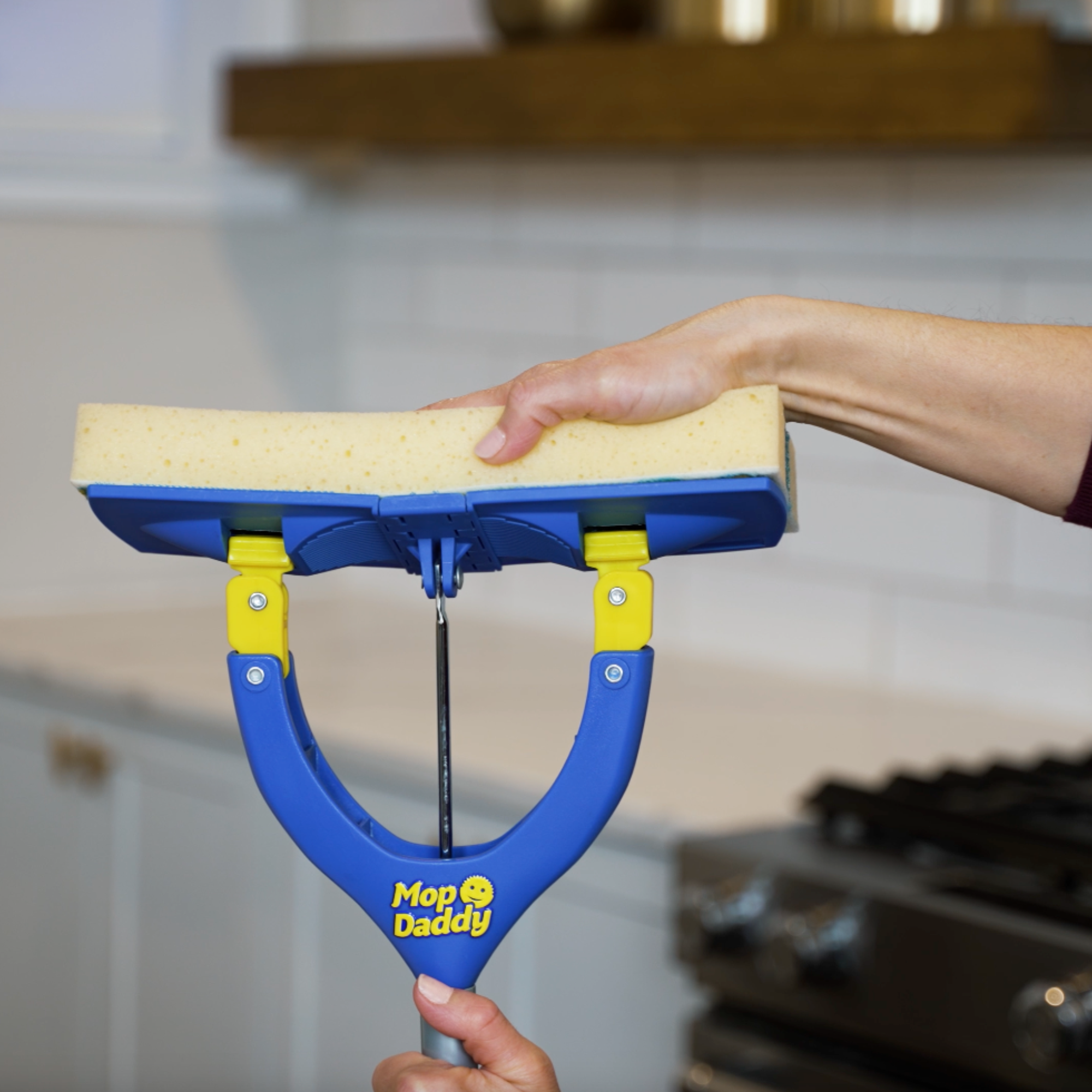 Cult cleaning brand Scrub Daddy has just launched a brand new butterfly mop — could it be the ultimate solution for banishing stubborn marks on your floor?
Cult cleaning brand Scrub Daddy has just launched a brand new butterfly mop — could it be the ultimate solution for banishing stubborn marks on your floor?We're obsessed with all things Scrub Daddy
By Kezia Reynolds
